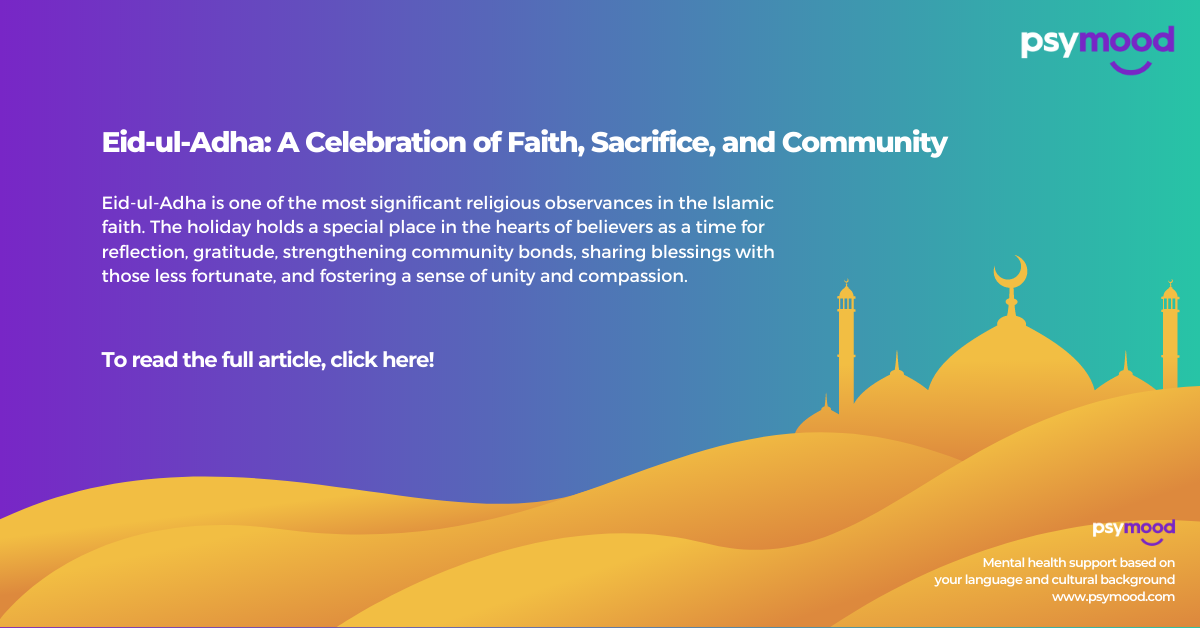Eid-ul-Adha: A Celebration of Faith, Sacrifice, and Community
Eid-ul-Adha, also known as the Festival of Sacrifice, is one of the most significant religious observances in the Islamic faith. This joyous occasion commemorates the unwavering faith and obedience of the Prophet Ibrahim (Abraham) and marks the end of the Hajj pilgrimage to the holy city of Mecca. Celebrated with great fervour by Muslims worldwide, Eid-ul-Adha holds a special place in the hearts of believers as a time for reflection, gratitude, and strengthening community bonds.
Origin and Significance
The origins of Eid-ul-Adha can be traced back to the story of Prophet Ibrahim (AS) as recounted in the Holy Quran. Ibrahim, known for his exceptional devotion to Allah, was tested with a remarkable trial. Ibrahim’s submission and sacrifice demonstrated his ultimate faith and obedience to Allah’s commands, and it continues to inspire Muslims to this day. Eid-ul-Adha, therefore, serves as a reminder of the importance of devotion, obedience, and complete trust in the divine will. It encapsulates the spirit of selflessness and sacrifice that underpins the Islamic faith and serves as a source of spiritual upliftment for Muslims around the world.
Observing the Holiday
Eid-ul-Adha is marked by various rituals and practices that foster unity, gratitude, and community involvement. Here are some key ways in which Muslims observe this special occasion:
Communal Prayers: The day begins with a special congregational prayer held at mosques, open grounds, or designated prayer locations. Muslims gather in large numbers, dressed in their finest attire, to offer prayers of gratitude and seek blessings from Allah.
Sacrificial Offering: An integral part of Eid-ul-Adha is the act of Qurbani, or sacrificing an animal as an offering. Muslims who can afford it often sacrifice a sheep, goat, cow, or camel, following the example of Ibrahim’s sacrifice. The meat is then distributed among family, friends, and the less fortunate, promoting acts of charity and generosity.
Festive Meals and Hospitality: Following the sacrifice, Muslims partake in festive meals that include a variety of delicious dishes, with an emphasis on sharing and hospitality. Inviting friends, neighbours, and the needy to join in these feasts is customary, fostering a sense of unity and strengthening community ties.
Acts of Charity: Eid-ul-Adha encourages Muslims to engage in acts of charity and kindness. Many individuals and organizations seize the opportunity to assist those in need, including donating clothes, food, and money. These acts of benevolence demonstrate the importance of empathy and compassion within the Islamic faith.
Importance of Community and Connection
Eid-ul-Adha exemplifies the significance of community and connection within Islam. The holiday serves as a reminder of the intrinsic value of supporting and uplifting one another. Muslims come together to celebrate, strengthen relationships, and share blessings with those less fortunate, fostering a sense of unity and compassion.
Through acts of charity, Muslims strive to alleviate the hardships faced by individuals and families, ensuring that the spirit of Eid reaches all community members. This collective effort promotes social cohesion, empathy, and inclusivity, bringing joy and relief to those who may be marginalized or in need.
Moreover, Eid-ul-Adha encourages Muslims to forgive and reconcile with one another, mending broken relationships and fostering a harmonious atmosphere. It is a time for families and friends to come together, reinforcing the bonds of kinship and reinforcing the importance of love and forgiveness.
Conclusion
Eid-ul-Adha is a deeply significant occasion in the Islamic calendar, serving as a reminder of the values of faith, sacrifice, and community. Through communal prayers, acts of sacrifice, and acts of charity, Muslims reaffirm their commitment to their faith and their obligation to support and uplift those around them. Eid-ul-Adha also embodies the essence of Islam, emphasizing the importance of unity, compassion, and connection. It is a time of joy, reflection, and renewed dedication to the principles that define the Islamic faith. As Muslims celebrate this auspicious occasion, they find solace in their faith and draw strength from the bonds they share with their communities, both near and far.
Having a strong support network is vital for everyone. Mental health specialists are an excellent support when it comes to mental health. PsyMood will match you with a specialist with your cultural background and language. We also have several Muslim specialists on the platform. Click here to find the best specialist for you!
PsyMood is a digital tool designed to help you find the support you need in the language that you are most comfortable with. PsyMood considers cultural background, geographical location, interests, and personal needs, amongst other factors, to pair you with service providers for either online or in-person therapy sessions.
For More Interesting Posts
You may also be interested in learning more about Specialists who work with Muslim individuals.


.png)
.png)
.png)
Recent Comments